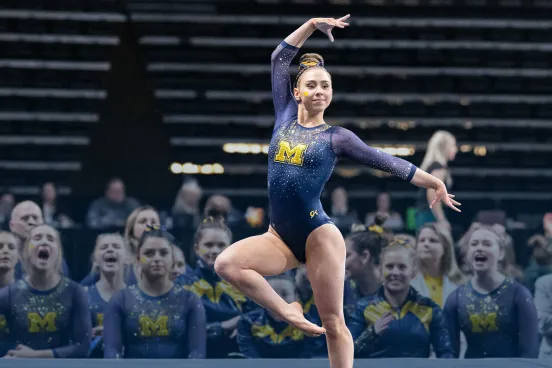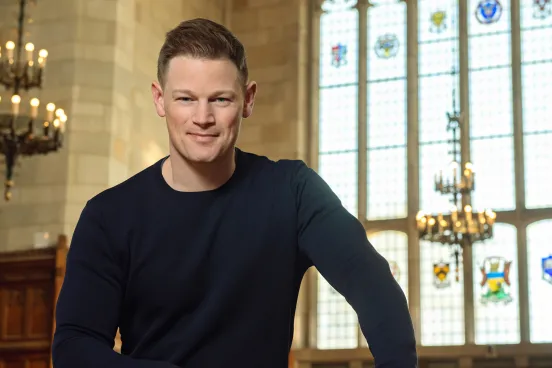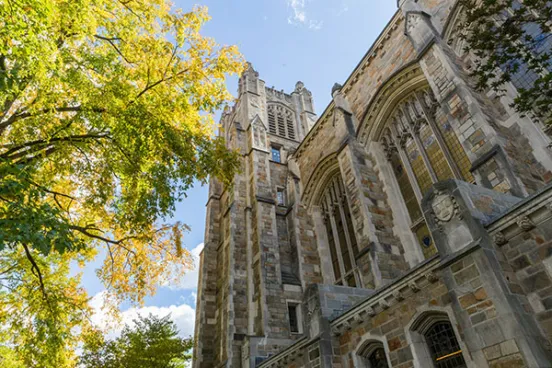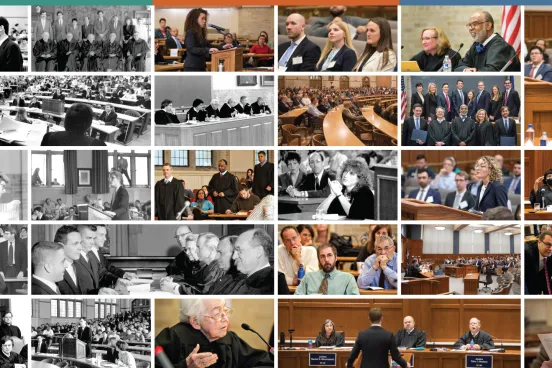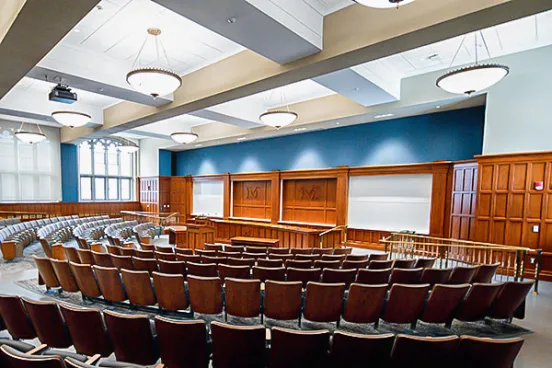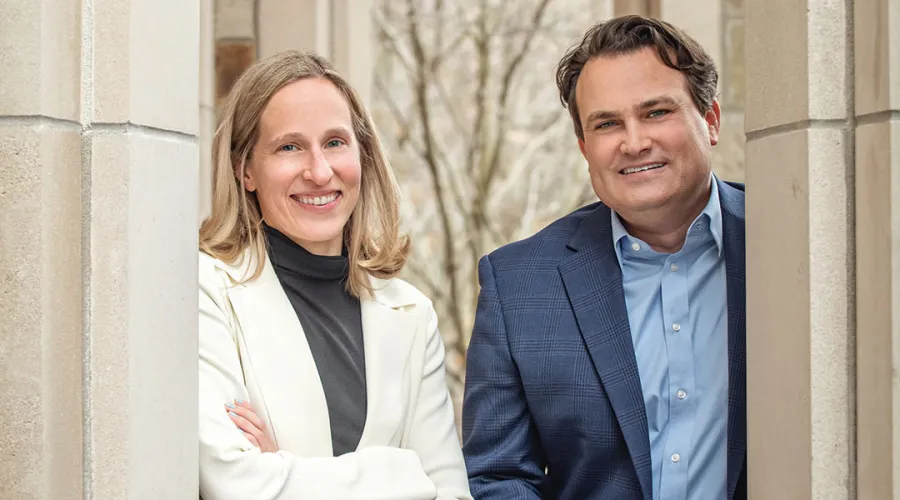
Each year, the Federalist Society honors a young legal scholar who best exemplifies its ideals with the Joseph Story Award. The American Constitution Society does the same with its Ruth Bader Ginsburg Scholar Award. While the two organizations sit at different ends of the ideological spectrum, two recent winners of each honor are on the faculty at Michigan Law.
Professor Leah Litman, ’10, won the 2023 Ginsburg Award, which “recognizes an outstanding scholar in the early stages of their academic career who has demonstrated those qualities exemplified by Justice Ginsburg: scholarly excellence, the ability to imagine how society might be more just and more equal, and the determination to use the law and one’s scholarship to creatively and strategically make the imagined real.”
Professor Christopher Walker joined the Michigan Law faculty last summer from The Ohio State University shortly after winning the Story Award, which honors a young scholar “who has demonstrated excellence in legal scholarship, a commitment to teaching, a concern for students, and who has made significant public impact in a manner that advances the rule of law in a free society.”
While it may be unusual to find winners of top honors from the progressive American Constitution Society and the conservative Federalist Society on the faculty of the same school, Litman and Walker say the situation highlights Michigan Law’s collegial atmosphere. In fact, the two have worked together on a number of projects this year, including supporting students applying for clerkships, creating new student fellowships, co-hosting an event for faculty speakers, and teaching Federal Courts.
This spring, they discussed their journey from clerks to colleagues and how they have found their intellectual home at Michigan Law.
What do these awards mean to you?
Litman: I was really moved to receive the Ruth Bader Ginsburg Scholar Award this spring. Justice Ginsburg was a pioneer and creative thinker and litigator who used the law to advance gender equity and gender equality. I wanted to go to law school because of my interest in gender equity; I actually came to Michigan in part because Professor Catherine Mackinnon is here. So I’m very honored to receive an award that’s even associated with Justice Ginsburg.
I was also on the personnel committee last spring, when Chris won the Story Award and when he made the (obviously correct, but also very exciting) decision to come to Michigan. Chris’s work has helped people understand how administrative agencies actually work—particularly in the area of adjudication, but also how courts interact with and review the work of agencies more generally. So I was delighted to see his careful work recognized and for him to announce that he was bringing his talents to Ann Arbor.
Walker: It was a thrill of my career to receive the Joseph Story Award last March, especially from the Federalist Society, whose mission has shaped so much of who I am as a law professor. Its mission is about more than just ideology. What I have loved about being involved in the Federalist Society is that we care deeply about identifying and examining perspectives and ideas, especially those with which we might not agree at first blush. That’s also one reason I was so excited to join Michigan Law, where the rigorous examination of ideas is central to its core mission.
And that’s also why I was so excited to see Leah receive a similar award from the American Constitution Society. Leah is such an obvious choice for this award, as she exemplifies the qualities of RBG herself. When you consider these two awards together, it says so much about Michigan Law. This is a place that values the pursuit of knowledge regardless of ideology. Indeed, it values engaging with the best arguments on all sides.
How would you describe the atmosphere of collegiality at Michigan Law?
Litman: I like to think of Michigan as a place that values people who are really good at what they do. We recognize that one way we will all get better at what we do is by engaging with people who do things differently. That makes for a pretty nice, welcoming environment—and one where people can learn by challenging themselves. Chris exemplifies this spirit. Among the many things he does is to put in a lot of effort to engage with and support his colleagues, particularly junior colleagues. Just to take one example: Professor Daniel Deacon and I presented a co-authored piece on the major questions doctrine at a workshop that Chris and I regularly attend, and Chris gave us really helpful feedback on another way of thinking about the major questions doctrine. And that made the paper better. He helped us better understand the arguments on the other side so that we could better engage with them.
Walker: Leah represents the intellectual climate at its best here at Michigan Law. She’s one of the loudest progressive voices in the legal academy—on her Strict Scrutiny podcast, in op-eds and other writings, and in so many other settings. And yet conservative students love her. Why is that? Because she cares deeply about ideas and deeply about people. She wants the best versions of arguments to be heard and understood, and she wants her students—and colleagues—to be better at what they do. Sometimes that means listening, supporting, and cheering on. Other times, though, that means being willing to express strong disagreement and respect people enough to encourage more critical thinking and even course correction.
You both clerked on the Supreme Court for Justice Kennedy. How did that experience affect you?
Litman: I learned a ton that year and have written (in the Michigan Law Review, actually) about how that clerkship informed my work as an academic and a scholar. That’s one reason I was so excited to come back to Michigan and help other students and alums be able to gain those experiences too (if they want them!). And as an added bonus, that clerkship is how I first met Chris and got to know him.
Walker: I think it’s so cool that Leah and I both clerked for Justice Kennedy. Clerking for Justice Kennedy was such an amazing experience for me as a young lawyer. And one of the best parts about being a law professor is to help students pursue their dreams in government and public service more generally. For many of them, that includes a formative judicial clerkship near the outset of their career. I’m so excited to work with Leah and others here to maximize the opportunities students and alums have to pursue those experiences.


